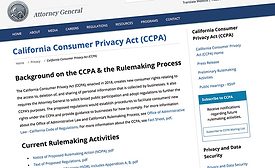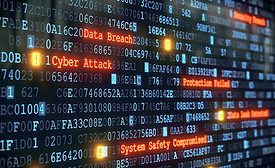Cybersecurity
CCPA Update: Analyzing the AG's Proposed Regulations
On October 10, 2019, the California Attorney General's office published its long-awaited proposed California Consumer Privacy Act (CCPA) regulations. What are they, and what should enterprises do to achieve compliance and avoid costly fines?
December 9, 2019
How to Close Cybersecurity's Widening Workforce Gap
How are public-private partnerships helping solve the cybersecurity skills gap?
December 6, 2019
Get our new eMagazine delivered to your inbox every month.
Stay in the know on the latest enterprise risk and security industry trends.
SUBSCRIBE TODAY!Copyright ©2024. All Rights Reserved BNP Media.
Design, CMS, Hosting & Web Development :: ePublishing
















